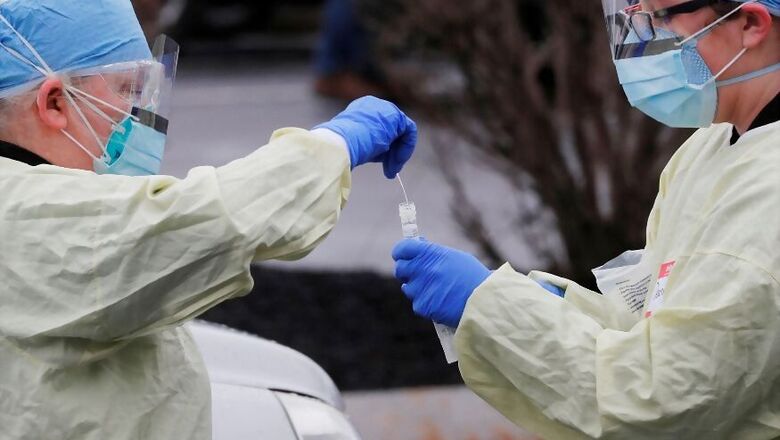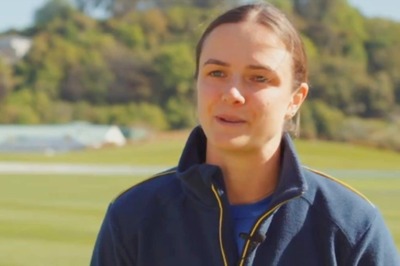
views
Big companies such as Intel, Medtronic as well as non-profit organisations like Mozilla Foundation, and Creative Commons have pledged to make their COVID-19 related intellectual property accessible, free of charge, so that it can be used in fighting coronavirus. Reports claim that Medtronic, a medical device making company known for producing ventilators, have agreed to publically share their intellectual property which is the design of Puritan Bennett 560 (PB 560) ventilator in the wake of COVID-19 induced public health crisis across the world. Ventilators are very important in providing treatment to coronavirus positive patients and have been in short supply in many countries recently. This cooperative gesture by Medtronic, therefore, will boost ventilator supply, as it will enable other companies, academicians, as well as individuals to manufacture ventilators using Medtronic's designs.
Such co-operation is crucial especially in the field of bio pharmacy if we want to mitigate the pandemic. With no available vaccines in the sight and death toll constantly rising, the free access to intellectual property -- especially among pharmaceutical companies, medical device makers, and diagnostic kit manufacturers -- will aid in making drugs and equipment required to provide treatment to thousands coping with the deadly virus, irrespective of where they live.
Furthermore, sharing intellectual property among members of academia is also important, so that the invention of a working vaccine can be accelerated, and more can be discovered about this potent virus.
To ensure such co-operation, a group of scientists, lawyers, entrepreneurs and individuals have come together and started the 'Open COVID pledge' initiative. The organisations, institutions and universities who take the 'Open COVID Pledge' will voluntarily make the commitment of sharing their Intellectual Property related to COVID-19, thereby reducing information barrier.
So far, Intel, Mozilla and Creative Commons have publically taken the Open COVID pledge. Harvard, MIT and Stanford have also agreed to this initiative. The University of Utah (Centre for Law and Biological Sciences), and Montreal Neurological Institute-Hospital are among some of the other institutions that have endorsed the pledge.
The current global healthcare crisis has brought to sharp focus the need to review patent laws of pharmaceutical products and how it should be reframed in case of a pandemic, or epidemic in future.
Currently, patent laws ensure that pharma companies are well within their legal rights to withhold sharing their recipes, or designs, even when public access to their medicines or equipment is an absolute necessity to mitigate a crisis of global scale which has already claimed thousands of lives. We are seeing that there are several drug manufacturers, who despite the fact that they do not personally have the infrastructure or capacity to manufacture their product at a scale in which it is required, are not sharing their formulae with others so that at least the drugs which can alleviate patients' miseries can be made available.
According to an article published in the Financial Times, a Swiss multinational healthcare company, Roche, which manufacture testing kits, as well as reagents used in them, was vehemently criticised by Dutch lawmakers for 'rationing supplies', and 'significantly decreasing national testing'. Only after that criticism did Roche take the initiative to share the recipe of the testing liquid which the government had requested. In the United Kingdom too, The Guardian observed that the heavy reliance on just a 'handful' of suppliers like Roche has been the fundamental problem in increasing testing.
Now more than ever, the need for pooling in resources, sharing ideas and finding creative solutions is becoming important. On 6 April, the World Health Organisation's director-general in his opening remark at a media briefing explained the crucial need of 'creating a pool -- a collection of patent rights, medicines and vaccines, with free access or licensing on reasonable and affordable terms for all countries.'
The creation of a voluntary Intellectual Property pool was suggested by Costa Rica, and currently WHO is working on their proposal, and hammering out details. In his speech, the director-general said, "Poorer countries and fragile economies stand to face the biggest shock from this pandemic, and leaving anyone unprotected will only prolong the health crisis and harm economies more."
"I call on all countries, companies and research institutions to support open data, open science and open collaboration so that all people can enjoy the benefits of science and research."



















Comments
0 comment